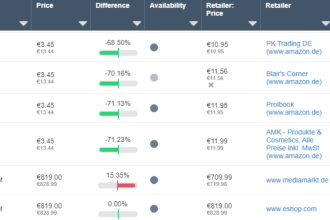David Sacks, the current White House AI and crypto Czar sold $200 million in crypto-related digital assets before taking his current role, a white house memo states. The memo reveals that Sacks sold these digital assets both personally and through his company Craft Ventures, before taking the role at the start of this year.
Sacks Reasoning
At least $85 million of the assets sold belonged to Sacks personally. When questioned on why he made such a large sale of cryptocurrency before taking on the role, Sacks stated that he didn’t want there to be any form of conflict of interest before his employment with the White House.
Crypto’s Popularity in America
The fact the role Sacks has taken is needed in the first place is a testament to the popularity of cryptocurrency in the US. President Trump has promised to make America the ‘crypto capital of the planet’ and recent reports have suggested that over 28% of American assets own cryptocurrency themselves. The reasons for this are many, from the potential to gain wealth through investments, to the community that surrounds digital assets in general. Cryptocurrency has a variety of use cases in the US, from the ability to buy property with the currency, to even enjoying a variety of bonuses and incentives when choosing to use a crypto casino (source: cryptocasino.guru).
Past Scrutiny Facing Sacks
Sacks faced scrutiny for holding on to his crypto assets upon taking the government role, and it is this that led him to divest his assets. The majority of the voiced concerns came from members of the Democratic party. One individual who addressed Sacks directly was Elizabeth Warren, the leading Democrat on the Senate Banking Committee. Sacks received a letter from Warren where she highlighted the potential conflict of interest and urged Sacks to disclose his cryptocurrency holdings.
Sacks Response
Sacks responded almost immediately, doing as was suggested and rapidly selling his digital assets. His firm, Craft Ventures, departed from 100% of its liquid cryptocurrency holdings, which included the popular coins, Bitcoin, Tether, and Solana. Not only that, but he also gave up his position in the Bitwise 10 Crypto Index Fund as well as his substantial shares in the crypto exchange company Coinbase.
Regarding his personal companies, Sacks has almost entirely liquidated his stakes. So much so that now only 0.1% of the holdings within his portfolio are cryptocurrency-based.
Other Government Officials
Sacks decision to sell his digital assets, so that his personal wealth cannot be effected by the government, stands in contrast to a number of other government officials.
President Trump
President Trump, for one, has significant crypto-based wealth and has even launched his own form of cryptocurrency, named after himself. Additionally, Trump has a significant stake in Trump Media and Technology Group, stakes in multiple real estate assets and has launched a substantial amount of crypto projects, all of which could benefit from government input. Since he stands at the head of government, this could raise concerns over the potential bias he could impose.
Elon Musk
Similarly, the important figure within the current government, Elon Musk, owns various businesses, including SpaceX and the social media platform X, that can benefit from the personal advice he gives the president, as one of his lead advisors.
SpaceX in particular directly benefits from monetary investments from the government. For example, the company recently accepted a $1.8 billion contract with the National Reconnaissance Office that instructed them to build a complex network of spy satellites.
Cabinet Members
There are also a significant number of cabinet members have a considerable investments in the world of cryptocurrency. For example, Howard Luntick, the Commerce Sectory is reported to have made hundred and millions of dollars because of his ties to the stable coin, Tether.
Conclusion
Sacks selling of his crypto-currency assets, although a positive thing that will remove any potential conflict-of-interest, has only drawn attention to the current structure of the rest of the government. Questions arise now, as to whether it is ethical for government officials to have stakes in and claim benefits from companies that are directly affected by the government itself.














